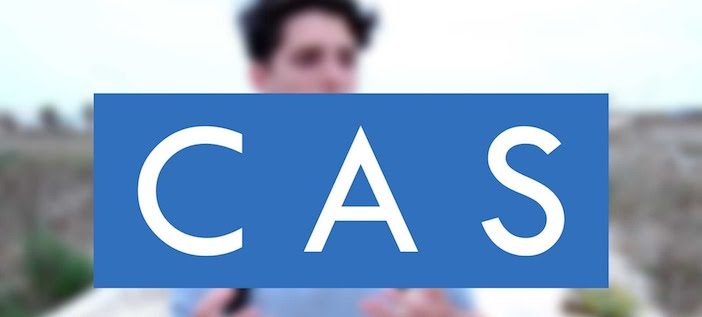The CAS program, which stands for creativity, activity, and service, is an integral aspect of the International Baccalaureate (IB) program. I attend Yew Chung International School of Beijing (YCIS), so next year CAS will become a reality for me and my fellow classmates. The program requires students to participate in activities and organize projects that fall into one of the three components through a series of extra-curricular activities, both in and out of school. IB students must complete frequent reflections of their progress and provide evidence of their participation, whether through photos or teacher evaluations. While I hear that it is quite a demanding task to tackle, I am told that with a good head start and thorough planning, the CAS program is not something to dread and grumble about.
As a rising junior, I am constantly reminded of the expectations that the CAS program will require of me for my remaining two years of high school. As preparation, my school requires freshmen and sophomore students to complete the ‘YCIS Challenge’, which is considered a less ‘intense’ version of CAS. Throughout the two years, I participated in a wide variety of activities, from being the lead in my school’s production of Legally Blonde: The Musical to an amateur member of the soccer and basketball teams. I gained service experience by volunteering myself for new student tours and hosted monthly in-school bake sales with my classmates to raise money for a visually impaired child at the Beijing School for the Blind. While these activities are all activities that could be used for a CAS portfolio, the one element of the CAS program that the YCIS Challenge lacks is the tedious CAS project.
Throughout the course of IB, each student must be involved in at least one CAS project that falls under the creative, active, or service categories. CAS projects are carried out individually or between a group of students and in some cases, involve communities outside of the school’s environment. The duration of a CAS project must be done over a period of at least one month’s time, incorporating both the planning and hosting of an event of your choosing. Each CAS project must have a set purpose and goal, and students must assume a particular role or responsibility for the project.
My first piece of advice upon choosing your CAS project, if you opted to work with organizations outside of your school, is to find local charities involved in the Beijing community. At YCIS and many other international schools, one of the key steps in beginning your journey to choosing a CAS project begins at the CAS fair. The CAS fair at YCIS has hosted annually around the beginning of the school year and involves about 100 high school students squished into a tiny auditorium to tour and gain information about local charities in Beijing. This year’s CAS fair is what originally gauged my interest with the Bethel Foundation, which helped me get officiated with a child at the Beijing School for the Blind. Because of my encounter with Bethel, I am now able to use it as my CAS project for my coming years in the IB program.
If going to a fair is not a possibility, the internet is also a great resource for you to find out about organizations near you. Many charities in Beijing have websites that provide information about the charity and their mission and have contact information about how to get involved. My sister, Lily Sandifer-Stech, worked collaboratively with her classmates to organize a Charity Gala at YCIS to raise money for the YuHua Charity, a home for children with mental and physical disabilities. She and her classmates selected the foundation because one of her classmates had previously contacted the organization and volunteered there, and felt passionate about continuing to support them.
CAS projects themselves come along with many challenges. Not only does it require a lot from students, but many students encounter problems that come with organizing their chosen task. When describing how she managed to organize the Charity Gala, Lily said: “The hardest part about the process was advertising. We didn’t really know how to do it”. Quite often, unrealistic expectations can drop a bombshell and ultimately change the course of the project. “We didn’t realize how limited our audience was; we had to change the way we were advertising [the Charity Gala].” Luckily, teachers are always encouraging students to come to them if they are having difficulties with their project. “Our supervisor for the project was very helpful,” Lily adds. “I learned that when you advertise, you can’t just describe the event. You have to emphasize what it is for.”
Although CAS can seem like an unnecessary burden hoisted upon the shoulders of IB students everywhere, the skills that CAS teaches are applicable in situations beyond the classroom. One of the main purposes of CAS is to encourage personal development and teach students how to work with others towards a common goal. It also is a counterbalance to the immense academic pressure that comes with the IB program, and can help clear your mind of the many daunting assignments that I’m sure will haunt you throughout your IB life.
Regardless of the workload, your CAS experience will be enjoyable if you work for something you are passionate about. It is something that gives you the freedom of choice and helps you contribute to the good of your community in the process.
Photo: i.ytimg.com
 This article is written by Chloe Sandifer-Stech from Yew Chung International School of Beijing (YCIS Beijing)
This article is written by Chloe Sandifer-Stech from Yew Chung International School of Beijing (YCIS Beijing)
Interested in writing for beijingkids? Email us at webeditor@beijing-kids.com or visit our Student Correspondents Program main page for more information.





2 Comments
So proud of you 🙂
Good suggestions and advice! Well written Chloe. 🙂